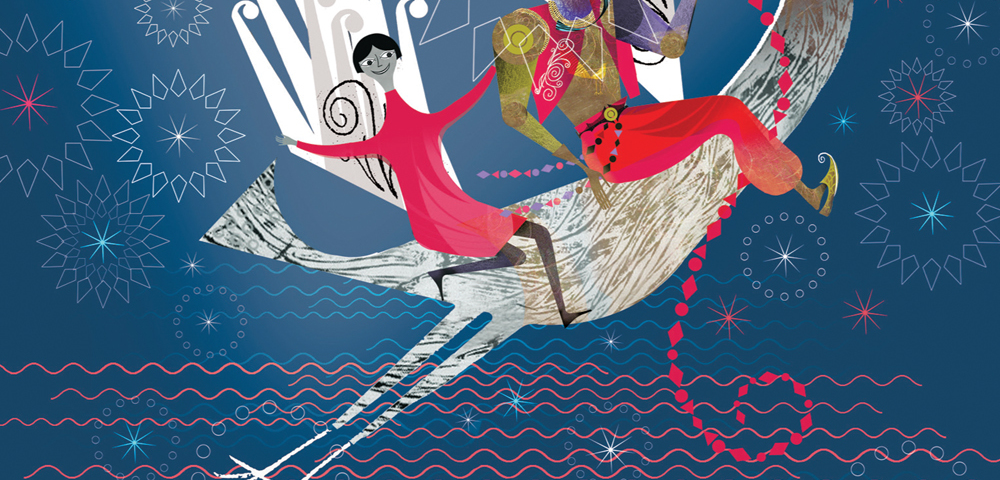Salman Rushdie has written a variety of adult books including “Midnight’s Children” and “The Satanic Verses.” While these books are great reads, they are complicated, long, and at times very confusing. “Haroun and the Sea of Stories” (1990) is the lightest and most accessible of Rushdie’s books. It was written for Rushdie’s son after Rushdie was separated from him for a significant period of time. Although this book could technically be categorized as a book for young adults, it tackles important societal problems (that are especially relevant in India, Rushdie’s home country) and has themes that are relevant to people of all ages.
This fantastical story follows Haroun as he journeys into a mythical land. The story begins in a sad city where Haroun’s father, Rashid, tells stories to the people. However, as is bound to happen, something goes terribly wrong. Haroun’s once happy family becomes unhappy as his mother leaves his father for another man. Rashid and Haroun leave so that Rashid can go tell stories for someone else, but it is quickly discovered that Rashid is losing his storytelling abilities. His stories, which were once so magical and entertaining, are losing their charm. As Haroun’s father is sleeping one night, Haroun hears a mysterious noise in the bathroom. He goes to investigate and discovers Iff the Water Genie, a fantastical being that Haroun is not quite sure what to do with, trying to turn off the storytelling tap that gives Rashid his amazing stories.
Haroun insists that Iff the Water Genie takes him to the magical land, Kahini, Earth’s second Moon, where all these stories are coming from so that he can get his father’s storytelling abilities back. Haroun and Iff discover that Kahini has become contaminated by darkness and the stories are beginning to get polluted. What were once happy tales of rescuing princesses become terrifying stories of failure involving huge spiders and death. Haroun must save this land from the terrible pollution that has begun to occur with the help of a few trusty companions, including Iff the Water Genie, Mali the Floating Gardner, and two Plentimaw Fishes (there are Plentimaw Fish in the sea). All these companions are fantastical creatures found in Kahini. The story involves other strange, funny characters including, but not limited to, Snooty Buttoo, the Eggheads, and the Walrus.
“Haroun and the Sea of Stories” is entertaining, to say the least. It is filled with puns and wordplay. The whimsical style and the mix between the English and Hindustani languages makes for a fun read. It has elements of a fairy tale, and echoes books such as “Alice in Wonderland” (Lewis Carroll) and “The Phantom Tollbooth” (Norton Juster). Like many Rushdie books, it includes elements of magical realism, the importance of identity, and the messy thing that is politics. However, it also deals with the meaning and importance of stories and storytelling and how those affect us in our lives, and how important they are to our identities. The story tackles the idea of the power of hope and the importance of a little adventure every now and then.
Although it is not a hard book to understand, “Haroun and the Sea of Stories” is a children’s tale that is relevant to people of all ages. Adults can enjoy it just as much as a kid and the messages are just as important whether you’re ten, ninety, or anywhere in between. The book is a quick, enjoyable read with just the right amount of humor, wit, and interesting characters who bring the story to life.


'Book Review: Haroun and the Sea of Stories' has no comments
Be the first to comment this post!